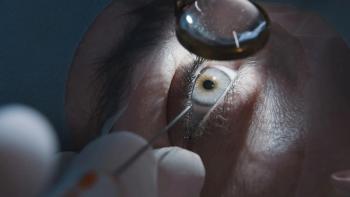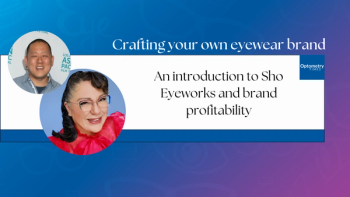
Strike 1! Strike 2! Strike 3! Time to see
The next time you go to a baseball game and hear some invective about the umpire and his vision, consider how Burton Worrell, OD, of San Jose, CA, has tried to make the world a better place for baseball, one umpire and baseball player at a time.
The next time you go to a baseball game and hear some invective about the umpire and his vision, consider how Burton Worrell, OD, of San Jose, CA, has tried to make the world a better place for baseball, one umpire and baseball player at a time.
Dr. Worrell has examined the eyes of major league umpires and professional ball players. He’s identified and treated their vision problems and helped them improve their on-field performance. For 9 years he had an assignment to follow major league umpires around California, conducting eye health screenings and helping them enhance their visual skills. He’s tailored his approach to sports vision to baseball players.
The early innings
Dr. Worrell’s entree into professional sports dates back to 1990. He coordinated the sports vision department at the University of California, Berkeley, joining a team researching high-speed perception. Their published work found its way to the trainers of the San Francisco Giants. He became the team’s optometrists in the 1990s, but claims no credit for their 2010 World Series victory.
“I examined [the eyes] of every player,” he said. “Some of the players wanted to go further, getting help to improve their batting average.” Ironically, he said, the players rarely got eye exams; they averaged one every 23.3 years, despite a commissioner’s ruling requiring routine glaucoma tests.
With his intervention, some players did improve, he said, but gathering data is difficult because of the players’ hectic schedules, sporadic office visits, and other influences like coaches who impacted performance. He focused on whatever visual difficulties players encountered.
But not every player wanted his help. Some were reluctant to test new approaches, fearing they would change their batting stance or pitching delivery technique for the worst.
The players’ attitudes surprised Dr. Worrell. Some lacked motivation, using excuses like nothing could be done or it was their last year and it wasn’t worth the effort. “They’re really good with denial,” he says. “When there are health problems, there’s a wall of denial.”
Eye care as spectator sport
In 2000, as Dr. Worrell’s work had become well known throughout the sport, Major League Baseball asked him to take over the vision care for umpires. He flew around California to attend baseball games, where he acted as the onsite eye doctor.
Umpires represent a different breed than ball players, he said. “They have an underlying belief that they make mistakes and are very humble about it,” he said. “They’ll tell you their eyes are OK but their judgment is not always perfect. So part of the process of judging objectively is to get the right input into the part of their brain that’s responsible for judgment. They wanted help enhancing their judgment capability.”
During one televised game, an umpire suddenly called time out because he had eye pain. Dr. Worrell ran out and found the umpire had a minor ocular abrasion. “I gave him an eye drop with high viscosity to lift the contact off his cornea so he wouldn’t be sensitive to it and, at the same time, allow him to have clear vision,” he says. “It worked. He finished the game. It was fun to go out there in the middle of the baseball field with 60,000 people watching you treat his eye.”
Back to the athletes
By 2009 Dr. Worrell was ready to get back to working with the ball players. He teamed up with a baseball coach and began consulting with more athletes involved in sports with high-speed perception challenges.
Since then, he re-designed the appearance of the baseball to trigger certain perceptual centers of the brain so that batters can perceive information faster. He also developed a series of 15 tests so that other optometrists can help more athletes improve their performance.
“I want to continue troubleshooting for baseball players,” Dr. Worrell said. “You have to be very specific and centered on what they want, instead of what you want as their doctor.”op
For more articles in this issue of InDispensable,
Newsletter
Want more insights like this? Subscribe to Optometry Times and get clinical pearls and practice tips delivered straight to your inbox.













































